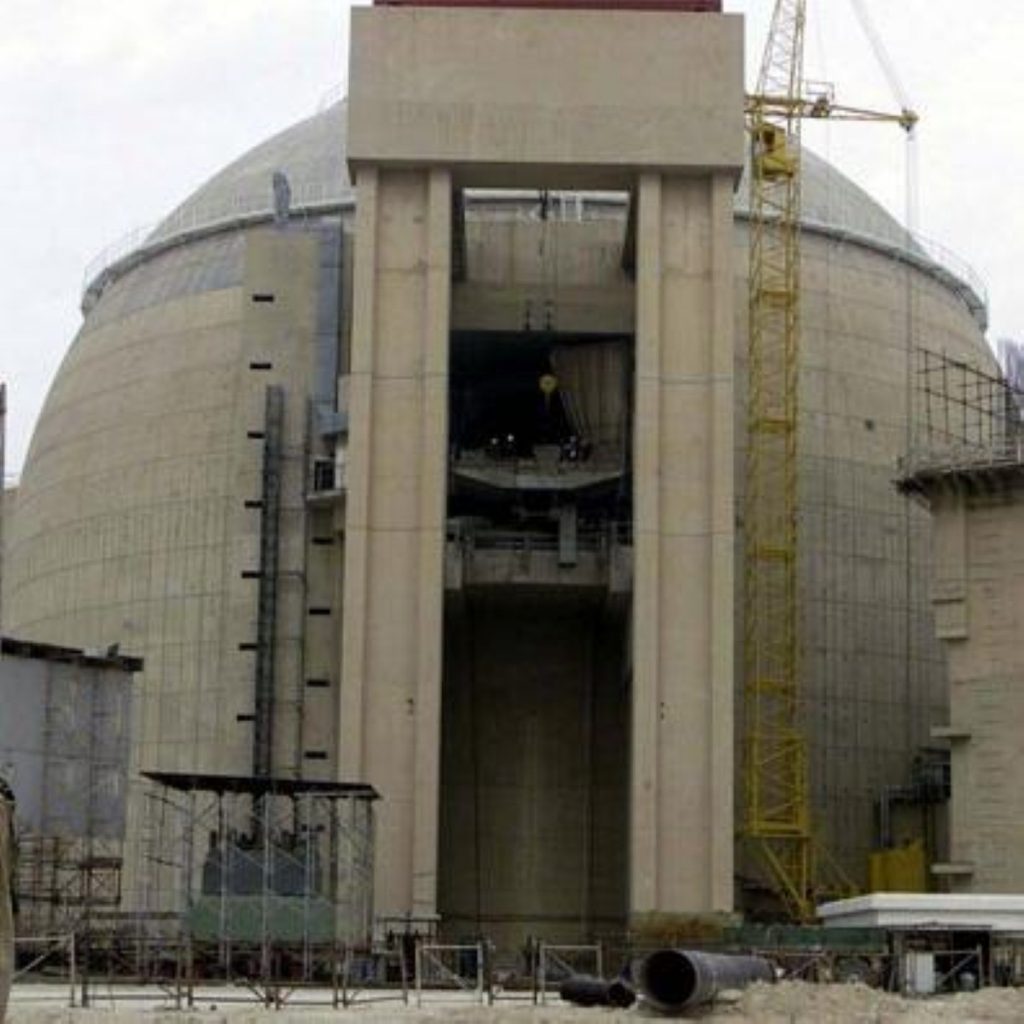‘Crunch time for Iran’
By politics.co.uk staff
The time has come for Iran to either negotiate with the international community or face ever-greater sanctions, Gordon Brown has said.
The speech, delivered to a central London audience, comes as Tehran mulls over offers of an “open hand” from the new administration in America.
“I urge Iran, once again, to work with us rather than against us on this,” the prime minister said.


“The opportunity to do so remains on the table. The choice is theirs to make.”
Mr Brown described Iran as a “test case” within a new framework allowing civil nuclear power for all prepared to cooperate within international rules.
Iran, which Mr Brown said has concealed nuclear activities and refused to cooperate with the UN’s nuclear watchdog, warrants sanctions because it is viewed as a “critical proliferation threat”.
“Iran therefore faces a clear choice continue in this way and face further and tougher sanctions, or change to a UN overseen civil nuclear energy programme that will bring the greatest benefits to its citizens,” the prime minister said.
“I hope that Iran will make the right choice and take advantage of the international community’s willingness to negotiate, including [US] president [Barack] Obama’s offer of engagement, rather than face further sanctions and regional instability.”
Iran denies its civil nuclear programme is a cover, as the international community fears, for a programme to develop a nuclear arsenal.
The keynote speech set out Mr Brown’s vision for a 2010 global new deal on nuclear power and nuclear weapons.
The prime minister said nuclear states would work towards satisfying non-proliferation treaties while non-nuclear states would be assisted with their civil energy programmes.
But he did not specify how the UK could abide by its non-proliferation obligations while renewing its Trident weapons system.
There is some speculation that Mr Brown was hinting at Britain’s scaling down of its Trident renewal programme if it sees firm movement on the issue from Russia and the US.
The government is also planning to release detailed plans for responsible treatment of the UK’s stock of fissile material.
Kate Hudson, chair of the Campaign for Nuclear Disarmament (CND), said: “We welcome any steps towards nuclear disarmament, but it is highly likely that the expansion of nuclear power will be counter-productive to this goal.”
Speaking on the Today programme this morning, defence secretary John Hutton said: “We have got to be clear with Iran about the consequences of them not complying. The clock is ticking on all of this.
“The offer is still on the table for the Iranians to take up this extraordinarily generous and, I think, unprecedented offer to help them with their [civil] programme.”
The prime minister will also argue civil nuclear energy is vital “whether we like it or not” because climate change priorities require its expansion.
The Liberal Democrats seized on that last comment, casting Mr Brown’s reliance on nuclear power as naive and fanatical.
“A new generation of nuclear power stations will not solve climate change,” said Liberal Democrat energy spokesman Simon Hughes.
“They will produce too little energy, come on stream too late and be too expensive. This is another example of short term, old-fashioned thinking and it undermines our security.”

